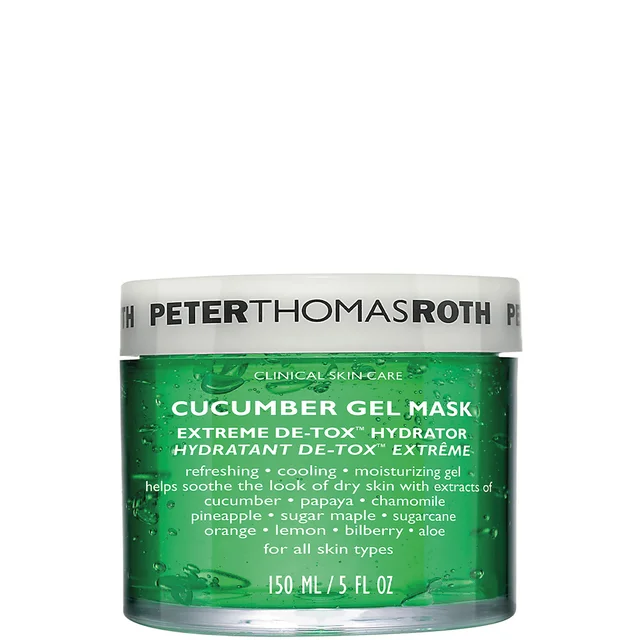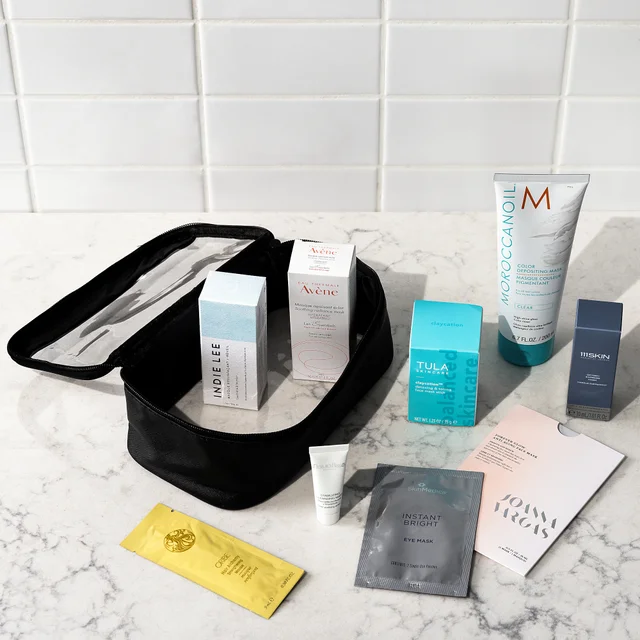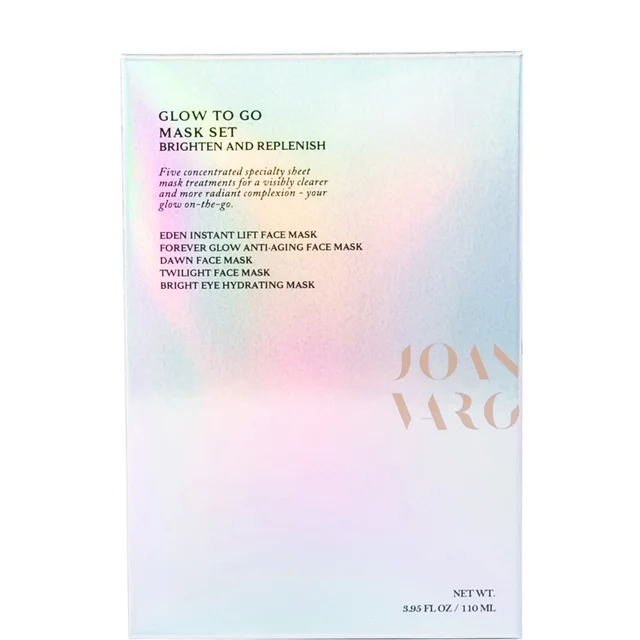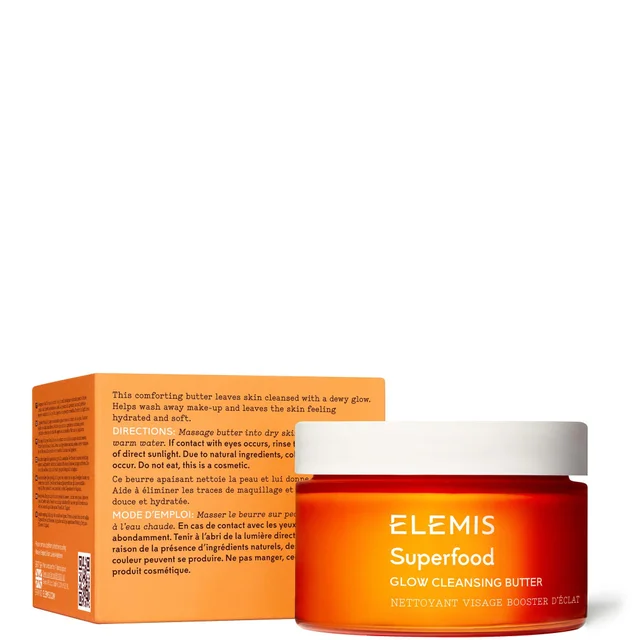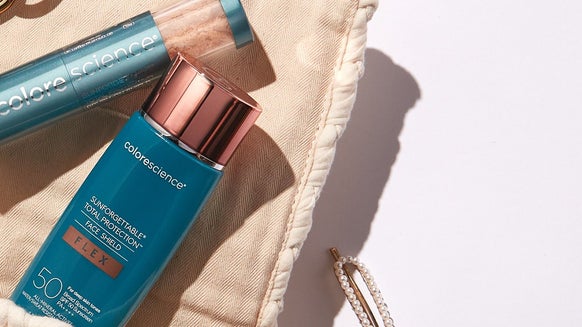There’s a reason why face masks are shorthand for self-care—it’s because they really work. In order to get the most out of a mask, however, you have to choose one that caters to your complexion.
If your skin type is dry, you’ll want a mask that offers a serious hydration boost. According to Dr. Michele Green, a board-certified dermatologist in New York, ingredients to look for include:
- Hyaluronic acid, which holds up to 1,000 times its weight in water and helps the skin retain moisture
- Glycerin, a skin barrier-supporting humectant that draws water to the top layer of your skin, creating a smoother, less flaky appearance
- Aloe vera, a fast-absorbing, anti-inflammatory ingredient that’s loaded with vitamins A and C, which help to heal and brighten skin
- Glycolic acid, a gentle exfoliating acid that helps to slough away the buildup of dry, dead skin cells
- Colloidal oatmeal, which according to Dr. Green “bind[s] to the skin creating a shield against irritation while locking in natural moisture”
- Ceramides, lipids that are naturally found in skin and help replenish and lock in moisture
- Vitamin E, a fat-soluble antioxidant that protects skin from oxidative stress, boosts collagen and elastin production and minimizes inflammation, redness and rough texture
Whichever mask(s) you choose, Dr. Green reminds us that, for best results, they should be used alongside a solid dry skin care routine, and should be used two to three times a week.
“While there are many benefits of using face masks, they work best when combined with proper and consistent skin care,” she concludes. “If a product works and makes your skin look and feel great, that is the best thing you could ask for.”
Now that you’re up to speed on what makes an A+ face mask for dry skin, keep scrolling for a few of our faves. Fair warning that you may want to add more than one to your cart.
1. PCA Skin Hyaluronic Acid Overnight Mask 1.8 oz.
Don’t have the time (or energy) to apply a mask and wait to rinse it off? This leave-on overnight mask will quickly become a go-to. It’s made with hydrolyzed hyaluronic acid, which sinks deep into skin to deliver its hydrating benefits, and sodium hyaluronate, which attracts and helps hold moisture in the skin.
2. SkinCeuticals Hydrating B5 Mask (2.5 fl. oz.)
Designed to be worn for 10 to 15 minutes, this hyaluronic acid-infused face mask will pump up the moisture on the spot. And, since it’s formulated with reparative vitamin B5, it will help restore texture and smooth out your complexion as a whole. Win-win.
3. iS Clinical Hydra-Intensive Cooling Masque (4 oz.)
This mask soothes dry skin with hydrating hyaluronic acid, calming aloe vera and anti-inflammatory rosemary-leaf oil. What’s more, it contains resveratrol, which helps to smooth, hydrate and brighten skin, so it boasts anti-aging benefits, too. Best of all, it only takes five to 10 minutes to work its magic.
4. Eminence Organic Skin Care Mix and Masque Trio Gift Set
Mix up some magic with this Mix & Masque Trio Gift Set and reveal healthy-looking skin. Designed to be mixed, layered together, or explored individually, these are Eminence Organic Skin Care's three most popular masks, and bring out refreshed and visibly rejuvenated skin.
5. Peter Thomas Roth Cucumber Gel Mask (5 fl. oz.)
This gel mask is a bestseller for many different skin types, including dry. With aloe vera at the forefront, the rinse-off mask is a miracle worker when it comes to soothing and hydrating dry skin—even after procedures like waxing or peels.
6. Best of Dermstore: The Mask Edit - $217 Value
Hand-picked by the Dermstore editors to provide targeted treatments, the Best of Dermstore: The Mask Kit features nine of our favorite skin and hair care masks designed to help smooth, clarify, hydrate and more. From purifying clay and brightening eye masks to hair repairing and skin resurfacing masks, our curated selection of mask must-haves promotes glowing, hydrated & polished skin & hair.
7. Joanna Vargas Glow to Go Mask Set
'Tis the season to glow, and glow you (or your lucky giftee) will, with five of the most-loved sheet masks from celeb-favorite facialist Joanna Vargas. Concentrated and biodegradable, these targeted treatments leave skin with instantly revitalized, perfect for event prep or recovery.
8. HydroPeptide Brighten and Glow Jelly Mask
This two-step, multifunctional hydrojelly mask instantly brightens, hydrates, firms and soothes, leaving all skin types radiant and glowing. Plus, it's jelly texture is SO fun to use.
9. Augustinus Bader The Face Cream Mask 50ml
The perfect splurge for your very nice list, this rich, creamy textured mask from Augustinus Bader is almost invisible when applied, absorbs quickly, and rinses clean for a boost of hydration and radiance.
It's also powered by their famous TFC8® to instantly breathe life into dull, stressed, dehydrated skin while brightening, firming, and evening the complexion - for exceptionally radiant results.
10. Elemis Superfood Glow Butter 90ml
This glow-getter is the definition of multi-tasker. A daily cleanser, a deep cleansing mask, and a hydrating makeup remover in one, its unique blend of fermented Pumpkin enzymes and Acerola Cherry, naturally rich in AHAs helps to brighten skin, while Mango Butter and Chia Seed Oil, rich in omega fatty acids, nourish and hydrate the skin.





